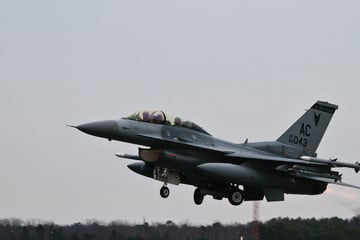US and Philippines begin military drills amid China's intimidation of Taiwan
Manila, Philippines - The US and Philippines on Tuesday launched joint military drills amid what is seen as China's increasing intimidation of Taiwan and a marine incident on Monday.

The exercises are part of annual drills known as the Kamandag, or Venom, which focus on defending the north of the Philippines, a region less than 500 miles from the island of Taiwan.
Involving thousands of American and Filipino troops, the live-fire exercises are being conducted across a number of small islands in the waterway that separates Taiwan and the Philippines.
"It's a coastal defense doctrine. The doctrine says that a would-be aggressor might be directed towards our territory," explained Filipino exercise director Brigadier-General Vicente Blanco.
In response to queries from reporters linking the annual exercises to ongoing tensions between China and Taiwan, Blanco stressed, "We are not exercising to join the fight."
According to a press release on the Kamandag issued by the Defense Visual Information Distribution Service (DVIDS), over 2300 personnel are involved in the drills, including more than 1,000 US marines and sailors.
"Kamandag 8 is designed to enhance combined operational proficiency in key areas such as combat medicine; coastal defense; humanitarian assistance and disaster relief; engineering; and chemical, biological, radiological and nuclear (CBRN) response," the press release explained.
Colonel Stuart Glenn, commanding officer of the MRF-SEA, was quoted in the release as having said that the exercises serve "as a testament to the enduring and ironclad alliance our nations share."
"We will enhance our interoperability, strengthen our collective defense, and build personal friendships," he said.
"Through our efforts, we reaffirm our mutual commitment to regional security as we face the ever-evolving security environment that threatens a free and open Indo-Pacific."
US-Filipino drills follow days of increasing tensions

Ongoing drills in the Philippines follow days of increasing tensions in the region, not only between the Philippines and China, but Taiwan as well.
On Tuesday, Chinese and Filipino vessels collided in the South China Sea, in a clash referred to by China's foreign ministry spokesperson Mao Ning as a violation of Beijing's sovereignty.
"China urges the Philippine side to earnestly respect China’s territorial sovereignty and maritime rights and interests in the South China Sea and stop taking any action that may complicate the situation," spokesperson Mao said.
This is not the first time that this has happened, either. Back in August, a Chinese and Filipino coast guard ship exchanged blows, in a clash referred to by a spokesperson for the Philippines as "irresponsible and dangerous."
Beijing and Manila have been engaged in an ongoing confrontation over a number of disputed reefs in the South China Sea. At one point, the Philippines accused China of ransacking a navy vessel.
Meanwhile, China and Taiwan have continued to be at odds, with Taiwan on Sunday placed on alert after Chinese aircraft carriers entered their sovereign waters.
The move was followed on Monday by a number of Chinese military vessels and aircraft circling Taiwan to send a so-called "stern warning" to Taipei.
"Taiwan is part of China, and the Taiwan question is China's internal affair that brooks no external interference," spokesperson Mao said yesterday in response to questions from reporters.
"If the US truly cares about peace and stability in the Taiwan Strait and regional prosperity, it needs to abide by the one-China principle and the three China-US joint communiqués, act on its leaders' commitment of not supporting 'Taiwan independence,' stop arming Taiwan, and stop sending any wrong signal to the 'Taiwan independence' separatist forces."
Cover photo: AFP/Ted Aljibe

